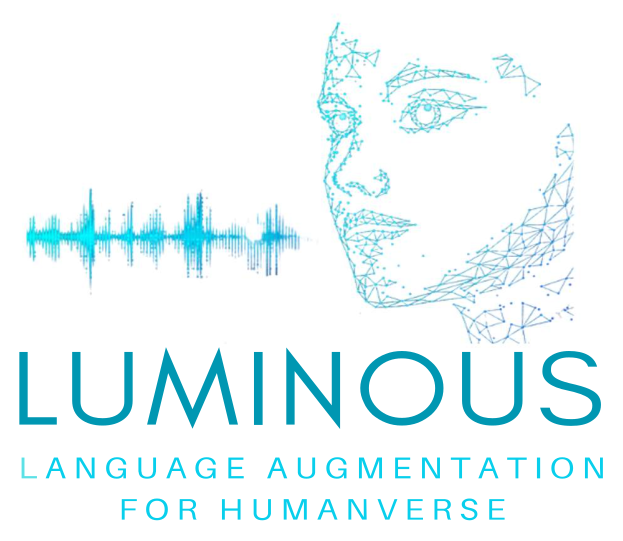The Approach of LUMINOUS Horizon Europe project in Ensuring Understandability and Safety for Every User.
Extended Reality (XR) enhanced by Artificial Intelligence (AI) provides possibilities ranging from enhancing recovery to reshaping collaborative design processes. However, cultivating trust and providing explanations are crucial for users to feel secure and empowered when engaging with AI technology in areas such, as healthcare. The LUMINOUS initiative directly tackles these issues.

Explaining AI in terms of Making it Understandable.
In LUMINOUS system design emphasises the importance of explainability. LLMs integrated within XR tools are expected to provide their rationale be it in recommending a word, in speech therapy or offering tailored training guidance by articulating the reasoning behind their responses.
This is accomplished by:
- Various forms of communication such, as signals and auditory cues along with written messages utilised for multimodal interaction.
- Avatars that adjust their explanations to suit the users understanding level based on the context.
- Specialised knowledge databases guarantee that the information provided is both relevant and easy to understand.
Establishing Credibility from the Very Beginning.
Trustworthiness in LUMINOUS project is determined through the implementation of the EU ALTAI framework and a thorough process of Ethical Risk Assessment to maintain the systems’ integrity.
- Ongoing surveillance of risks.
- Ways to ensure humans are, in charge of overseeing processes.
- Identifying bias, during the training of models.
- Security measures, like encryption and obtaining consent, for data processing to ensure privacy protection.
These steps help guarantee that individuals are protected from unclear or risky AI choices.
Challenges of Ethics in relation to At Risk Communities
LUMINOUS stands out for its use, in neurorehabilitation settings specifically aimed at assisting stroke patients with aphasia. A group facing challenges, in cognition and communication abilities where ethical considerations are paramount. The collaboration with patients and healthcare professionals to ensure that XR tools are tuned to the needs and limitations of the individuals they cater to is very important.
- To ensure the safety of all individuals involved;
- Different types of therapy are tailored to each patient. Adapt based on their progress.
- Measuring cognitive workload involves tracking eye movements and cues of focus and attention.
- Throughout the interaction process with individuals or groups of people involved in a discussion or activity requires revisiting consent rather than just addressing it once.
- Prioritising wellness involves providing non-judgmental responses, from artificial intelligence systems.
The LUMINOUS project pilots illustrate that AI-powered immersive settings can be, at the forefront of innovation while also upholding standards effectively. Establishing AI as transparent and reliable in its operations ensures that all individuals — regardless of their tech expertise — can experience the advantages of this technology.
